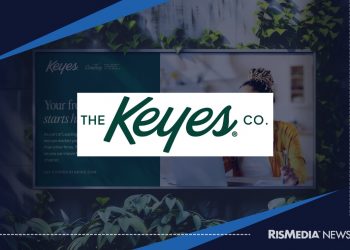Insiders and outsiders to our industry have ignited a fire under traditional brokerage models. By some accounts, more than 60% of our nation’s brokerages now operate non-traditional service delivery and agent compensation models. These marketplace “transformers” are greatly enabled by massive inflows of investment capital, enabling heavy investment in technology solutions for agents, brokerage leaders and consumers.
While third-party listing aggregators, iBuyers and the like promise to provide algorithmically-generated data, they cannot compete with high-quality, local market expertise and actionable advice provided by experienced, market-savvy brokers and agents. Training and education programs built around the interpretation of local market data and knowledge are paramount to retaining past, present and future customers. Successful brokerages need to enable their agents to provide this market knowledge in abundance and deliver it with great frequency.
Brokerages also need a powerful agent productivity platform that enables agents to transact business 100% virtually while providing a professional, efficient in-market office space when needed. Mobile workflow tools provide safer, cost-efficient communication, lead generation/management, presentation and contracting functionality. Building or evolving your business around these technologies and processes allows you to compete more effectively.
Expensive legacy systems may be crippling your profitability. COVID-19 has created even more awareness around how traditional brokers spend money. Physical offices are under-utilized and less meaningful than ever before.
Never underestimate the importance of good communication. Agents must have a disciplined approach to stay in touch with clients. An important component of agent and business retention is to be fully and frequently engaged in communication that proves expertise while reinforcing the value brokers and agents bring to the transaction.
By adhering to the above practices and principles, United Real Estate’s national franchise and company-owned network doubled in size in the past 12 months. We also invested heavily in developing our proprietary technology stack over the past decade. As a result, our system’s delivery costs are much lower, and we pass those cost efficiencies to our brokers and agents.
Having operated both traditional and full-service, transaction fee-based agent compensation models, I’ve seen firsthand that profitability can be reached well in both. However, the fast-moving water of the brokerage industry is definitely the transaction fee-based model. Profitability for the brokerage and higher incomes for agents are both achieved when operated properly.
A surefire way to see if your brokerage needs retooling is to ask yourself two simple questions:
1. In recent years, has it become harder to recruit and retain agents?
2. Are key components of your value proposition easily obtained outside of your brokerage?
If the answer to either of these questions is “yes,” it is especially important to seek business model guidance, insulate your brokerage from the flames of competition and thrive in 2021.
 Rick Haase has led real estate brokerage strategy and operations for over 30 years. Haase joined United Real Estate (URE) and currently serves as president of United Real Estate and chief operating officer of its parent company, United Real Estate Group (UREG). In these roles, he is responsible for leading enterprise operations and driving growth. United Real Estate Group owns and franchises real estate brokerages in 46 states. For more information, contact Haase at rick@unitedrealestate.com or visit www.unitedrealestate.com.
Rick Haase has led real estate brokerage strategy and operations for over 30 years. Haase joined United Real Estate (URE) and currently serves as president of United Real Estate and chief operating officer of its parent company, United Real Estate Group (UREG). In these roles, he is responsible for leading enterprise operations and driving growth. United Real Estate Group owns and franchises real estate brokerages in 46 states. For more information, contact Haase at rick@unitedrealestate.com or visit www.unitedrealestate.com.











